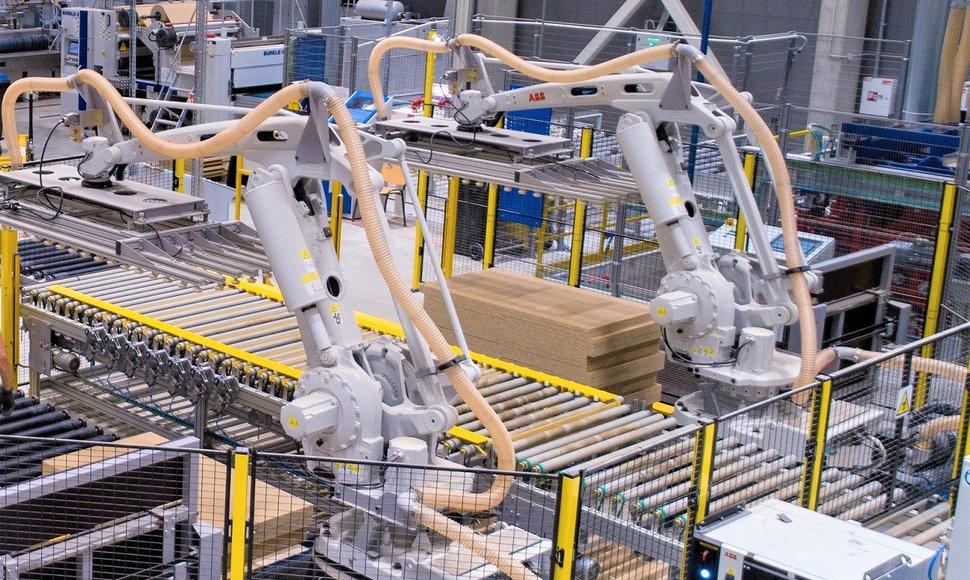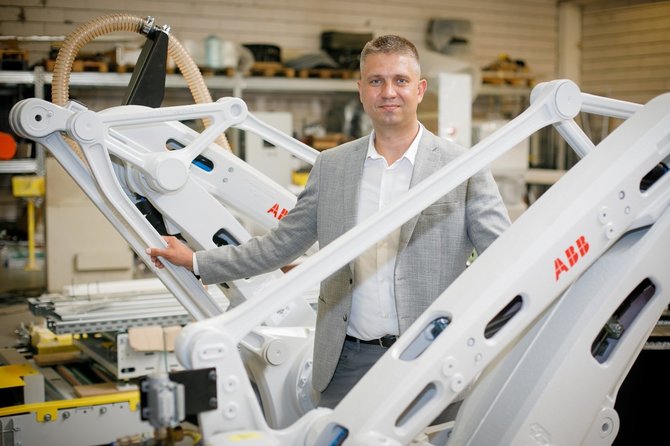The young generation’s fears and innovativeness
A representative survey of Lithuanian, Latvian and Estonian citizens commissioned by the SBA Group’s robotics company Robotex found that while a large part of the countries’ citizens say they do not see a risk of losing their jobs in the future due to robotisation, young specialists do feel concerned. For example, in Lithuania, an entire 40% of respondents between the ages of 20 and 24 believe that robots will replace their jobs. However, some are calm and unconcerned over it, while others are worried. Meanwhile, in Latvia and Estonia, the same opinion is held by younger youths aged 16-19, who have yet to enter the labour market or have done so only recently, with respectively 41% and 42% being concerned.
“More than a third of youths who have entered or are due to enter the labour market think that in the future, a robot will replace them in the workplace – this could be a worrying trend. Nevertheless, most people from this century, having grown up surrounded by technology, are not concerned about it. However, young people are definitely aware that robots will be able to perform an increasing number of tasks with technologies improving. I believe that this trend only highlights the young generation’s understanding that the labour market will increasingly require specialists who are able to resolve problems, innovate, operate robots and work successfully in a team with others,” Vytautas Kazlauskas, the head of Robotex, says.
The older generation feels safe on the labour market due to experience
The survey of citizens across the Baltic States also revealed that older specialists feel the safest in their jobs. In Lithuania, an entire 70% of respondents aged between 45 and 54 felt that robots would not replace their work in the future. In Estonia, this figure is 66%.
Meanwhile, in Latvia, somewhat younger specialists feel most at ease – 67% of respondents aged 25-34 say that robots will not replace them at work in the future.
“Older professionals with 15-20 years of experience in the labour market are an important part of the market. Their opinion of robotisation and calm outlook regarding the process can be due to their accumulated knowledge and experience, their understanding that they will be able to redirect their skills in the future, change their career path. Furthermore, professionals on the market are often not only experts in their specific jobs – they are also thoroughly familiar with the market and competition, and they can foresee changes. In this case, the prevailing opinion among respondents is that robots and artificial intelligence cannot replace their experience and knowledge. Nevertheless, the older generations’ calm outlook on the future of their work could also be due to their general view on technologies and how widely they can be used in considering the future perspective,” V. Kazlauskas says.
Both of these tendencies are also proven across the Baltic States because people in managing positions do not think robots will replace them. Again, leaders in Lithuania feel the most at ease – an entire 82% of them say that they will not be replaced by robots in the future, while the figure in Latvia is 72% and 77% in Estonia.
Meanwhile, students across the countries most often think that robots will take over their workplaces in the future. Nevertheless, most of them are not afraid of this. For example, in Lithuania, 23% think that there is a threat to jobs, while 16% are unconcerned by it. The respective figures in Latvia are 50% and 32%, while in Estonia – 37% and 27%.
The research company NielsenIQ performed a representative public opinion survey this April across Lithuania, Latvia and Estonia, surveying 4,800 individuals.













